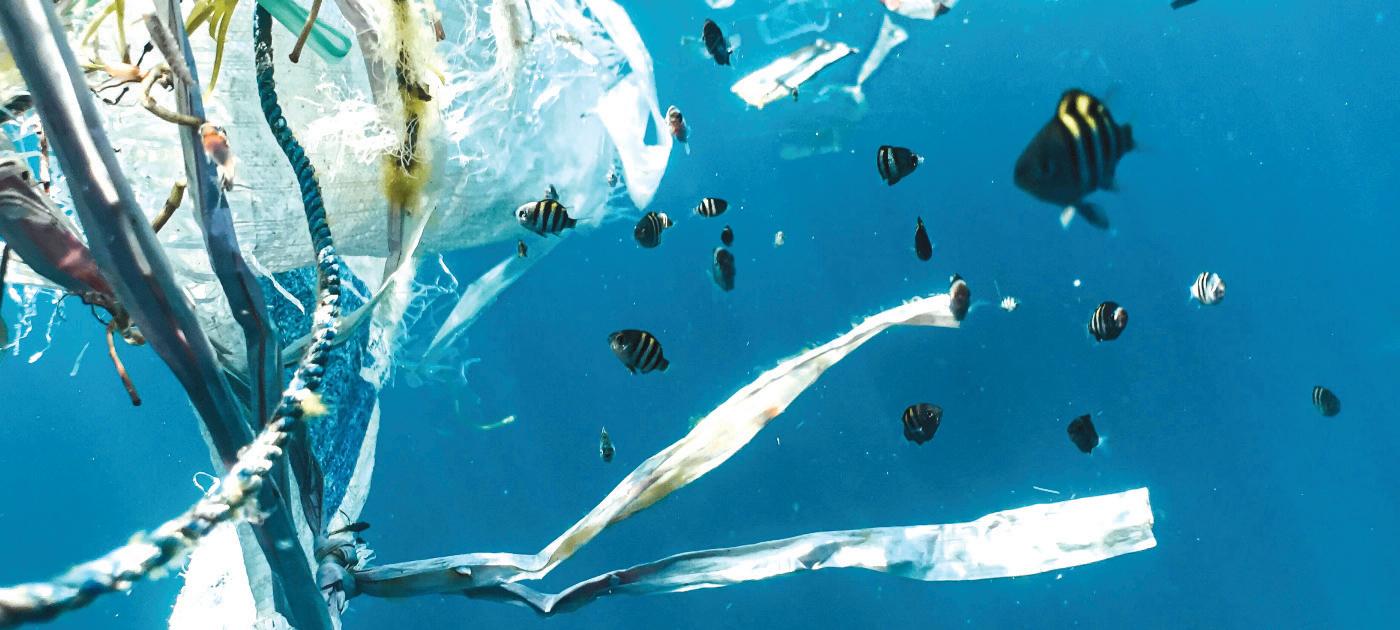
3 minute read
UN outlines roadmap to slash global plastic pollution by 80%
PLASTIC pollution could drop by 80 percent by 2040 if countries and companies make deep policy and market shifts using existing technologies, a new report by UN Environment Program said.
The report, released ahead of a second round of negotiations in Paris on a global agreement to beat plastic pollution, outlines the magnitude and nature of the changes required to end plastic pollution and create a circular economy.
UNEP is the global champion for the environment with programmes focusing on sustainable development, climate, bi...
“The way we produce, use and dispose of plastics is polluting ecosystems, creating risks for human health and destabilizing the climate,” said Inger Andersen, UNEP executive director. “This UNEP report lays out a roadmap to dramatically reduce these risks through adopting a circular approach that keeps plastics out of ecosystems, out of our bodies and in the economy. If we follow this roadmap, including in negotiations on the plastic pollution deal, we can deliver major economic, social and environmental wins.”
The report recommended the elimination of problematic and unnecessary plastics to reduce the size of the problem in order to cut pollution by 80 percent globally by 2040. The report calls for three market shifts—reuse, recycle and reorient and
SMC aids corn farmers, buys over P23.9-b worth of crops
SAN Miguel Corp., through food unit San Miguel Foods, has purchased over 1.3 million metric tons of corn amounting to P23.9 billion from farmers nationwide since 2020 to date.
The purchase is part of the company’s initiative to source raw materials for its food products directly from local growers to help boost farm incomes, reduce the country’s dependence on imports and help achieve food selfsufficiency.
The program, launched in 2020, is designed to benefit farmers from all over the country. Initially, it covers 13 provinces that include Batangas, Bicol, Bukidnon, Bulacan, Cagayan De Oro, Cebu, Davao, Iloilo, Isabela, Ormoc, Pangasinan, Tarlac, and Zamboanga, with plans to expand by the end of the year.
“Through this program, we are assured of local corn supply for our food business while our local farmers are guaranteed a steady market and fair prices for their crops. Buying directly from them boosts their income and keeps their livelihood sustainable,” SMC president and chief executive Ramon S. Ang said.
At the height of the pandemic in 2020, San Miguel Foods purchased over 500,000 metric tons or 500 million kilos of corn to help farmers in various provinces affected by quarantine protocols and supply chain disruptions that saw their produce going to waste.
Isabela province farmer Marjorie Gante said SMC’s local corn buying program had given her and her family a renewed sense of security.
“Because of San Miguel’s program, we’re no longer afraid to plant and harvest. We are assured that our products will go somewhere, unlike in the past when we would have to go to different places to find buyers, and even then, there would be no certainty as to whether prices would be good, or if we could get paid properly,” Gante said in Filipino.
Meanwhile, Emity Durog, who has been farming for 20 years, says the program saves them time, effort and resources, as they no longer have to travel to different towns to sell their corn.
diversify products. The report said promoting reuse options, including refillable bottles, bulk dispensers, deposit-return-schemes and packaging take-back schemes, can reduce 30 per cent of plastic pollution by 2040. To realize its potential, governments must help build a stronger business case for reusables.
It said lowering plastic pollution by an additional 20-percent by 2040 can be achieved if recycling becomes a more stable and profitable venture. Removing fossil fuels subsidies, enforcing design guidelines to enhance recyclability, and other measures would increase the share of economically recyclable plastics from 21 to 50 percent. The UNEP report added that careful replacement of products such as plastic wrappers, sachets and takeaway items with products made from alternative materials (such as paper or compostable materials) can deliver an additional 17-percent decrease in plastic pollution.
The report noted that even with these measures 100 million metric tons of plastics from single-use and short-lived products will still need to be safely dealt with annually by 2040—along with a significant legacy of existing plastic pollution. This can be addressed by setting and implementing design and safety standards for disposing of non-recyclable plastic waste, and by making manufacturers responsible for products shedding micro-plastics
The report said the shift to a circular economy would result in US$1.27 trillion in savings, considering costs and recycling revenues. A further $3.25 trillion would be saved from other effects such as health, climate, air pollution, marine ecosystem degradation and litigation-related costs.
The shift could also result in a net increase of 700,000 jobs by 2040, mostly in low-income countries, significantly
Source: UNEP improving the livelihoods of millions of workers in informal settings.
The UNEP said investment costs for the systemic change are significant, but below the spending without it: $65 billion per year as opposed to $113 billion per year. Much of this can be mobilized by shifting planned investments for new production facilities –no longer needed through reduction in material needs–or a levy on virgin plastic production into the necessary circular infrastructure.
The report said a five-year delay may lead to an increase of 80 million metric tons of plastic pollution by 2040. UNEP News






